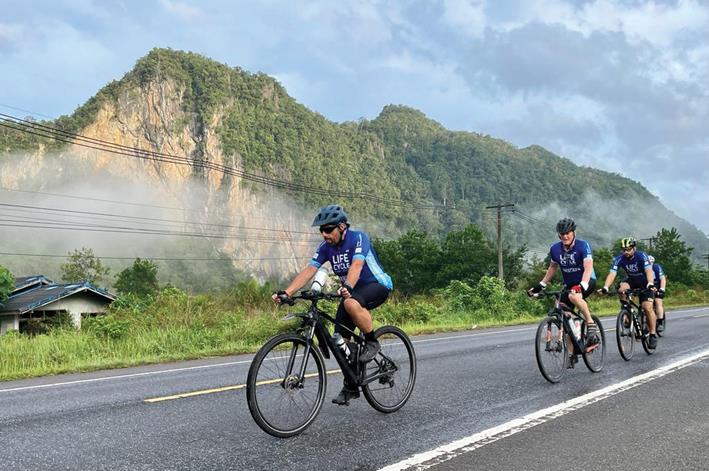Since 2014, the LifeCycle Malta Foundation has been at the forefront of combating kidney disease in Malta through a critical partnership with the University of Malta's Research Innovation and Development Trust (RIDT). This collaboration, rooted in a shared mission to enhance medical research, targets a pressing health concern with growing impacts both locally and globally.

Kidney disease, driven by an aging population and lifestyle diseases such as diabetes and hypertension, presents significant challenges to Malta's healthcare infrastructure. The condition not only strains financial resources but also severely affects the quality of life of patients. In response, LifeCycle Malta and RIDT are dedicated to improving early detection and management of kidney diseases, ultimately aiming to mitigate its profound effects on Maltese society.
A landmark moment in this partnership occurred in February 2014 when the LifeCycle Malta Foundation presented the RIDT with a donation of €70,000 to facilitate the launch of an exclusive Kidney Research Programme in Malta with the primary goals of advancing and fostering competitive research in kidney physiology and disease, and to offer graduate training opportunities for emerging scientists and physicians who are interested in kidney studies.

Over the years, the foundation has remained a steadfast supporter of RIDT, channeling a total of €220,000 in funds raised from its rigorous annual cycling challenge towards kidney research. These funds have significantly advanced the field, leading to the creation of a kidney disease biobank and initiating pivotal research projects. One such project investigates the genetics of congenital kidney disease in Maltese children, while another explores adult diabetic nephropathy, a common complication of type 2 diabetes. These projects involved a number of departments within the University Faculty of Medicine, namely the Department of Physiology and Biochemistry, the Department of Pathology and the Department of Peadiatrics, that started working with Mater Dei Hospital as part of the LifeCycle Kidney Research Programme.
Notable progress has been made in studying autosomal dominant polycystic kidney disease (ADPKD), the most common inherited kidney disorder and a leading cause of end-stage renal disease in Malta and Gozo. Current research has uncovered unique genetic variants in the Maltese population, offering insights into the distinct nature of the disease locally compared to other countries. These findings emphasise the crucial role of genetic testing in managing ADPKD and have sparked hope with the potential of gene therapy to transform treatment paradigms.
The research on ADPKD, led by Prof. Edith Said and Prof. Emanuel Farrugia from the University of Malta, has most recently received a further boost with an additional €25,000 donation from the LifeCycle Malta Foundation in 2024. This support fuels ongoing studies into the genotype-phenotype relationships of ADPKD, enhancing the scientific understanding and clinical management of the disease.
LifeCycle Malta Foundation's commitment extends beyond financial support; it actively raises awareness and advocates for better treatment options through events like the annual LifeCycle Challenge. The 2024 challenge, themed "Journey of Good Hope," will see participants cycle 2,000 kilometres from Botswana to the Cape of Good Hope in South Africa, starting October 25th. This event not only aims to raise significant funds but also to spotlight the urgency of advancing kidney disease research.
Since its inception in 1999, the LifeCycle (Malta) Foundation has raised nearly €4 million, demonstrating the power of community and endurance in tackling serious health issues. Through its enduring partnership with RIDT and the University of Malta, LifeCycle Malta continues to play a pivotal role in shaping a healthier future for all Maltese citizens, making strides in kidney disease research that resonate well beyond the island's shores.
Donations to the LifeCycle (Malta) Foundation can be made via Revolut on 9932 9101, by PayPal on this link: https://buff.ly/35g17CC and via SMS: 5061 7370 for €2.33; 5061 8920 for €6.99; 5061 9229 for €11.65; or via a call to 5160 2020 for €10; 5170 2005 for €15; and 5180 2006 for €25.
Donations can be made also via bank transfers via Swift code VALLMTMT, IBAN MT 18 VALL 22013000000014814521017, with the Bank name being Bank of Valletta, and account number 14814521017.
The LifeCycle Foundation is registered with the Commissioner for Voluntary Organisations - VO/0529
For more information visit
https://lifecyclefoundation.com or https://www.facebook.com/LifeCycleChallenge